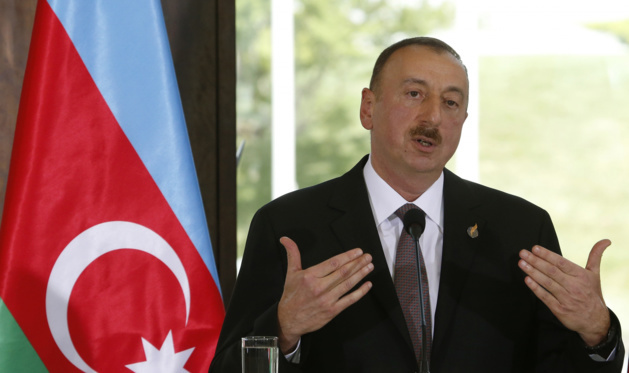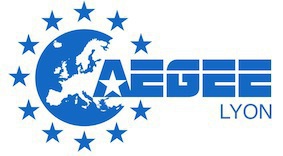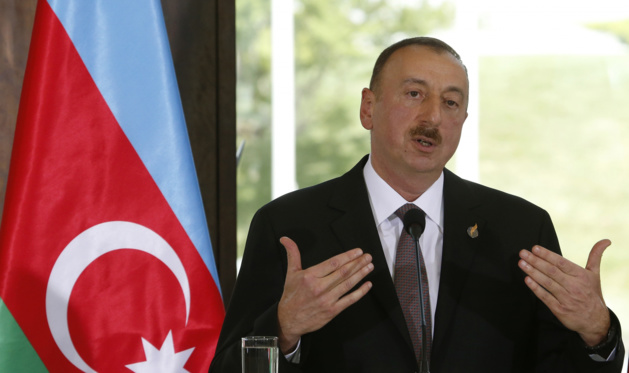
Credit Reuters
In 2011, everyone was looking towards the capital Baku as it was hosting the Eurovision Song Contest . For this occasion, the entire city centre had been refreshed. Officially, $76 million had been spent for this purpose, although the real cost of the operation would be more between $277 million and $721 million according to estimations. The event was supposed to show the world a new side of the country. The one of a nation living in the modernity of its time and far from its image that never leaves it of a too few democratic state where inequalities are blatant and Human Rights are not respected; not to mention the territory conflict with Armenia about Nagorno-Karabakh.
. For this occasion, the entire city centre had been refreshed. Officially, $76 million had been spent for this purpose, although the real cost of the operation would be more between $277 million and $721 million according to estimations. The event was supposed to show the world a new side of the country. The one of a nation living in the modernity of its time and far from its image that never leaves it of a too few democratic state where inequalities are blatant and Human Rights are not respected; not to mention the territory conflict with Armenia about Nagorno-Karabakh.
Aliyev’s government is doing everything in its power to make critics stop as June 2015 will see Baku in the spotlight again for the first European Games .
.
 . For this occasion, the entire city centre had been refreshed. Officially, $76 million had been spent for this purpose, although the real cost of the operation would be more between $277 million and $721 million according to estimations. The event was supposed to show the world a new side of the country. The one of a nation living in the modernity of its time and far from its image that never leaves it of a too few democratic state where inequalities are blatant and Human Rights are not respected; not to mention the territory conflict with Armenia about Nagorno-Karabakh.
. For this occasion, the entire city centre had been refreshed. Officially, $76 million had been spent for this purpose, although the real cost of the operation would be more between $277 million and $721 million according to estimations. The event was supposed to show the world a new side of the country. The one of a nation living in the modernity of its time and far from its image that never leaves it of a too few democratic state where inequalities are blatant and Human Rights are not respected; not to mention the territory conflict with Armenia about Nagorno-Karabakh. Aliyev’s government is doing everything in its power to make critics stop as June 2015 will see Baku in the spotlight again for the first European Games
 .
. Azerbaijan and Europe: a two-way policy
Since the middle 1990’s, Azerbaijan has been strategically embracing the rest of the world. In 1999, the country signed the Partnership and Cooperation Agreement on the basis of an economic, social, financial, civil, scientific and cultural cooperation with the European Union. The idea was to bring Azerbaijan towards a more democratic policy and a market economy, with mutual interests in mind.
As the European Union was finishing negotiations about the first big enlargement in 2003, the European security issue entered the discussion. For the EU, those negotiations seemed to be a necessity to secure and “promote a circle of well-governed countries to the East of the EU as in the Mediterranean area with which it is necessary to keep a cooperation-based relation.”
This led to the creation of the European Neighbourhood Policy in 2004 in which Azerbaijan has played a key role to ensure an energetic provision. Rich on oil, on its natural resources found into the Caspian Sea and thanks its strategic position as a transfer country; Azerbaijan is an alternative way for the EU in this area.
The Eastern Partnership between the EU and Azerbaijan, Armenia, Georgia, Moldova, Ukraine and Belarus aims at improving political and economic relations of these six post-Soviet states which are strategically important. Under those current circumstances, Azerbaijan has been committing –as in its former treaties- to improve its democratic system and the situation of Human Rights within the country for a further cooperation with the EU.
As the European Union was finishing negotiations about the first big enlargement in 2003, the European security issue entered the discussion. For the EU, those negotiations seemed to be a necessity to secure and “promote a circle of well-governed countries to the East of the EU as in the Mediterranean area with which it is necessary to keep a cooperation-based relation.”
This led to the creation of the European Neighbourhood Policy in 2004 in which Azerbaijan has played a key role to ensure an energetic provision. Rich on oil, on its natural resources found into the Caspian Sea and thanks its strategic position as a transfer country; Azerbaijan is an alternative way for the EU in this area.
The Eastern Partnership between the EU and Azerbaijan, Armenia, Georgia, Moldova, Ukraine and Belarus aims at improving political and economic relations of these six post-Soviet states which are strategically important. Under those current circumstances, Azerbaijan has been committing –as in its former treaties- to improve its democratic system and the situation of Human Rights within the country for a further cooperation with the EU.
The gold rush
By keeping and improving their cooperation, the two parts aim at maintaining good relations in their own interests on the long-term. Indeed, Azerbaijan remains for Europe the main alternative to Russia and Iran to supply energetic resources from Caspian Sea and Central Asia.
The European Union carries out a policy of realism based on economy in Azerbaijan. As a result, any changes in the current Azerbaijani policy would mean the necessity to rethink all the strategy between the EU and Baku. Not to imply that the European Union turns a blind eye to the lack of democracy and the terrible situation of fundamental rights in Azerbaijan, but the current need in energetic resources is such that the battle is beyond governments.
Even though all the treaties and partnerships that have been signed with the European Union should tempt Azerbaijan to establish a democratic legal state based on the respect of Human Rights and even if the country has been a member of the Council of Europe since 2001 –implying that Baku has committed to respect the European Convention on Human Rights-, the current situation stays appalling.
During the last parliamentary elections in 2013, lots of Human Rights activists were arrested. Even though numerous global actors which were observing the election proceedings noticed several failures to a healthy democratic system and even if the European Union and the Council of Europe frequently blame the situation in Azerbaijan, Aliyev doesn’t really pay attention to that. Indeed, the man is aware of his power and prefers blaming the state of war between Azerbaijan and Armenia to justify the current situation of his country.
The European Union carries out a policy of realism based on economy in Azerbaijan. As a result, any changes in the current Azerbaijani policy would mean the necessity to rethink all the strategy between the EU and Baku. Not to imply that the European Union turns a blind eye to the lack of democracy and the terrible situation of fundamental rights in Azerbaijan, but the current need in energetic resources is such that the battle is beyond governments.
Even though all the treaties and partnerships that have been signed with the European Union should tempt Azerbaijan to establish a democratic legal state based on the respect of Human Rights and even if the country has been a member of the Council of Europe since 2001 –implying that Baku has committed to respect the European Convention on Human Rights-, the current situation stays appalling.
During the last parliamentary elections in 2013, lots of Human Rights activists were arrested. Even though numerous global actors which were observing the election proceedings noticed several failures to a healthy democratic system and even if the European Union and the Council of Europe frequently blame the situation in Azerbaijan, Aliyev doesn’t really pay attention to that. Indeed, the man is aware of his power and prefers blaming the state of war between Azerbaijan and Armenia to justify the current situation of his country.






























